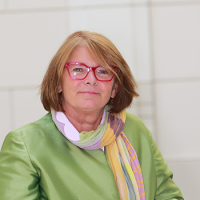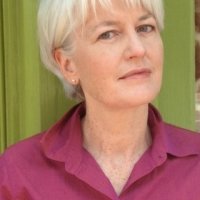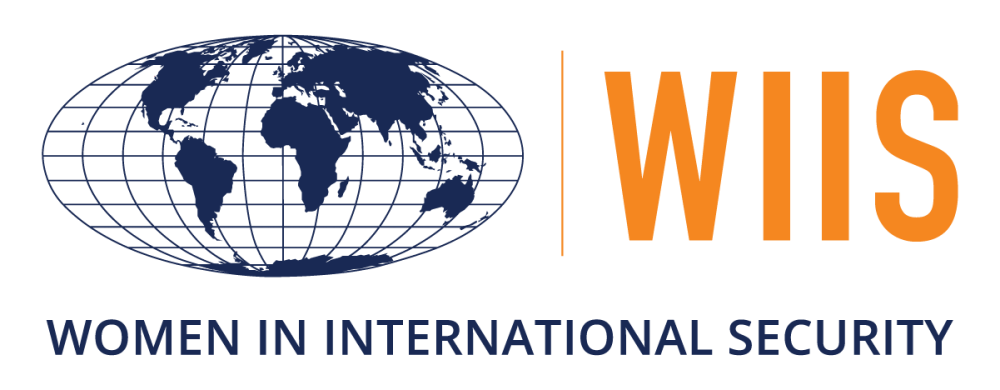Advancing Gender Representation and Equality in the European Union
Submit a question
In 2020, the European Union (EU) introduced its first Gender Equality Strategy, and with its first female president, Ursula von der Leyen, gender equality and gender mainstreaming became a top priority for the EU Commission. A flurry of commitments have been presented but a persistent gap exists between institutional statements and the reality on the ground. To achieve equal representation and access to political power, women in the EU have to overcome many road blocks. Challenges are especially persistent in the field of trade and foreign policy.
The Women in International Security (WIIS) and the Wilson Center’s Global Europe Program held a conversation on Wednesday, December 8 about the factors that influence gender representation and ways to increase women’s access to civilian and military missions in the EU.
Policy Brief by Karin Johnston: Advancing Gender Equality in the European Union
Selected Quotes
Chantal de Jonge Oudraat, Fellow; Member, Board of Directors of Women In International Security (WIIS) and its President from 2013-June 2021
“The EU is not doing very well. A 2020 report that you cite by the European Court of Auditors shows that the Union lacks specific budget tools to ensure that its spending advances gender equality. And this is particularly shocking in the case of home affairs and development and cooperation. And it stands in such stark contrast to the legal and political commitments the EU has made to gender equality.”
“Advancing gender equality has to start at home. The EU can lead by example, the fact that the EU now has four governments Sweden, France, Spain, and now Germany that have embraced a feminist foreign policy might be hopeful and I hear that in the Netherlands there is also some interest in possibly looking into the effect of embracing a feminist foreign policy.”
“Gender dynamics are really crucial in understanding security challenges, crucial in understanding not only the effects and impacts but also causal pathways and it is vitally important that civil society organizations keep pushing these issues, keep governments accountable to their policy declarations.”
Karin Johnston, Senior Fellow at Women in International Security (WIIS)
“While the EU has made significant strides, its achievements have been unevenly distributed and implemented and I think this is important for the discussion to follow. It's uneven in its geographic distribution that is, of course, Nordic states are doing better at implementing these policies than say Cyprus or Bulgaria. It’s uneven in the issue domains, especially in foreign and security policy. Not only does the European parliament and some of the internal documents show this, the World Economic Forum data and other security data tell us that it is the domain of politic empowerment and access to positions of political power where women are most disadvantaged.”
“The bottom line is, ambitious rhetoric from an institutional commitment, but poor performance record in the implementation of the policies and increasingly worrying backlash against gender equality measures among member states. For many people this damages the EU's positioning of itself as a global leader on gender equality and in its external relations, and what must the EU do? Walk the talk, and particularly demonstrate its commitment to gender equality in the EU.”
“I think it’s particularly important to talk about the responsibility of the member states also in that attempts at diversity and to support women in the recruitment process. A lot of the difficulties are again things that don't take a lot of financial commitment to do, it means looking at how we understand the tools and mechanisms that are used for recruitment, for personnel policies, and taking apart things that are gender-neutral and infusing them with gender equality principles that will bring more women hopefully into the process.”
Michelle Egan, Global Fellow; Professor and Jean Monnet Chair ad personam, School of International Service, American University
"My worry is that all of this attention right now on supply chain resilience, on human rights in the supply chain, doesn't really talk about it or genderize it, and let’s face it a lot of those supply chains are really in the service sector which is women. 20% of the agreements talk about women's rights, 40% of them include a reference to gender equality in these free trade agreements, and then a number of them talk about women's empowerment. So the language also varies across the agreements, there's a great heterogeneity across them. And secondly most of them, I won’t use the word norms but most of them are voluntary and non-binding so it raises the question about enforcement.”
“I think we often tend to sort of assume the EU can do everything but the question is how much competence, how much budget, does it have to promote gender equality and how much of that has got to be bottom-up at the national or local level.”
“When I look at who is appointed to investment screening boards or regulatory impact assessment, or trade and advisory boards, some of these are making important decisions and they are heavily male. So I think that's an area. We tend to always look at the formal institutions but I think the informality also creates barriers to access and participation.”
Roberta Guerrina, Professor, School of Sociology, University of Bristol
“We need to really consider, A, the rationalities that led to the inclusion of gender equality within the process of European integration which was an economic rationality. It wasn’t that the founding fathers, and I'm using this term quite purposefully, were great feminists. They included the principle of equality because there was serious concern from the French government that they would be at a competitive disadvantage vis-á-vis the textile industry in Italy. Now, why do we have to go through this historical overview? Because this really helps us to understand the limitations of the EU as a normative power, both within the boundaries of the EU but also externally.”
"If gender is not integrated in a cross-cutting way, across key areas of if you wish high politics, such as the global strategy, is the EU really a gender norm entrepreneur? And, when it does integrate them what are the values that are integrated? Is gender equality being co-opted in order to achieve higher political priorities, and if so what does that mean for the future of this institution as a gender equality actor?"
“I think it's really important to think about gender in a more holistic way. (With) gender and when we think about gender equality, it is not just the binary men and women but also that we need to apply an intersectional lens because we have already raised the issues of social justice and social economic access in order to address some of the issues around participation. But this also matters to the overarching thrust of the policies and the impact of the EU as a gender actor both internally as well as externally. The EU has done quite a lot in thinking about gender equality in a very traditional, liberal kind of way however it is still in its infancy when it comes to understanding the intersectional dimension of gender, gender equality, and its role especially when it comes to external affairs.”
Introduction

John O. Rankin Professor of International Affairs and Program Director, M.A. in International Affairs, George Washington University
Moderator

Panelists


Professor and Jean Monnet Chair ad personam, School of International Service, American University

Hosted By

Global Europe Program
The Global Europe Program is focused on Europe’s capabilities, and how it engages on critical global issues. We investigate European approaches to critical global issues. We examine Europe’s relations with Russia and Eurasia, China and the Indo-Pacific, the Middle East and Africa. Our initiatives include “Ukraine in Europe”—an examination of what it will take to make Ukraine’s European future a reality. But we also examine the role of NATO, the European Union and the OSCE, Europe’s energy security, transatlantic trade disputes, and challenges to democracy. The Global Europe Program’s staff, scholars-in-residence, and Global Fellows participate in seminars, policy study groups, and international conferences to provide analytical recommendations to policy makers and the media. Read more

